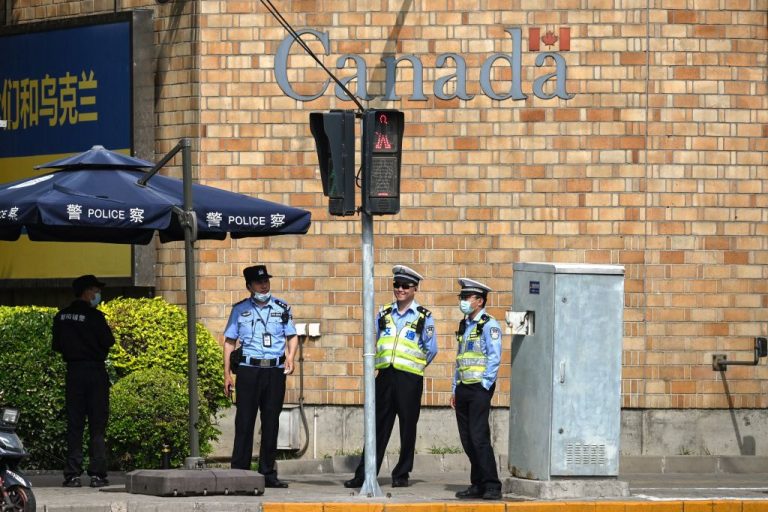The Twitter account for the Canadian Security Intelligence Service (CSIS), the True North’s equivalent of the CIA, has warned the public that operatives for the intelligence apparatus of the Chinese Communist Party are using LinkedIn to target professional Canadians looking for employment.
In a June 20 thread, the agency’s social media account stated, “The People’s Republic of China’s Intelligence Services (PRCIS) are targeting Canadian citizens inside & outside of China.”
It states that the CCP uses “proxies,” which it calls “targeters,” to “identify people who are actively looking for jobs in strategic sectors or who have high-value credentials.”
MORE ON THE CCP’S OVERSEAS OPERATIONS
- Chinese Nationals Busted in Alleged Thailand Counterfeit Gold Scam
- Biden China Policy Coordinator Co-Authored 2015 Paper Advocating America Install CCP’s Belt and Road
- Chinese National Claiming $40,000 Annual Income Buys $32 Million in Vancouver Real Estate
- Facebook Journalism Project Partner Tied to Chinese ‘Marxist Journalism’ Training Ground
CSIS warns that once marked, the individual will be approached on LinkedIn by an agent “posing as anything from an HR recruiter to a security consultants.”
After building a modicum of rapport, the agent will attempt to move communications to WeChat, Whatsapp, or e-mail.
Success
You are now signed up for our newsletter
Success
Check your email to complete sign up
Once groomed, CCP agents offer their mark payment in exchange for writing reports for what CSIS refers to as clients and consultants, noting that the target is often asked to attend meetings with the pair.
“Both the consultant and the client are in fact intelligence officers,” the agency states.
Corruption allegations
The “reports” appear to be more clearly espoused as “confidential, privileged information that is of interest to the PRC,” CSIS says in the final tweet of its thread.
In a tertiary report on the announcement, Global News, one of Canada’s federally subsidized media outlets, offered little more to the story than to note the Chinese Consulate would not respond to requests for comment on the topic.
South China Morning Post noted that China’s Ministry of Foreign Affairs likewise did not respond to a request for comment on the CSIS bulletin.
Unidentified sources from the spy agency have produced a number of headlines in the first several months of 2023, taking aim at allegations of corruption inside the Canadian federal government, specifically in Prime Minister Justin Trudeau’s Liberal Party.
One of the most serious of which emerged in February, when the country’s network media reported, based on a CSIS leak, that the Pierre Elliott Trudeau Foundation, the Trudeau family’s foundation, laundered $1 billion of Chinese regime money via a billionaire Chinese national before Justin won the 2015 election.
In May, the Trudeau administration declared a low-ranking PRC diplomat persona non-grata, expelling them from the country, after another battery of leaks implicated the man in a long-running Communist Party foreign interference operation targeting elected Members of Parliament.
‘PRCIS’
The “PRCIS” acronym used by CSIS is non-standard and does not appear to refer to a specific arm or branch of Communist Chinese intelligence, enforcement, and influence apparatuses, such as the PRC’s Ministry of State Security or the United Front Work Department, which is a Party organization.
However, the term has also appeared in federal-level charges against citizens of the United States.
In 2018, the Department of Justice charged a Utah man who was formerly an officer with the Defense Intelligence Agency for accepting at least $800,000 in compensation in exchange for providing his handlers with “information he learned” at military intelligence conferences his credentials allowed him access.
The man handed the files “to contacts in China associated with the PRCIS” over a four year period between 2013 and 2017, the release states.
In 2017, the DOJ busted a Virginia man who worked as a consultant and “held numerous positions with various government agencies and several defense contractors,” allowing him to receive a Top Secret security clearance, which was terminated in 2012 when he departed the government.
The press release for the case alleges the man “travelled to Shanghai in March and April 2017 and met with an individual, who he believed was working for the People’s Republic of China Intelligence Service (PRCIS).”
When the FBI interviewed the man after he drew suspicion from Customs and Border Patrol after returning from Shanghai with $16,500 in cash he did not declare, the man told agents he had met with someone from the Shanghai Academy of Social Sciences (SASS).
“Since at least 2014, the FBI has assessed that Chinese intelligence officers have used SASS affiliation as cover identities,” the release states.
The man allowed FBI agents to examine an electronic device he used to communicate with his CCP handler.
The FBI found “a handwritten index describing eight different documents. Four of the eight documents listed in the index were found stored on the device, with three containing classified information pertaining to the same U.S. government agency.”
“One of those documents was classified TOP SECRET, while the remaining two documents were classified SECRET,” they added.

















